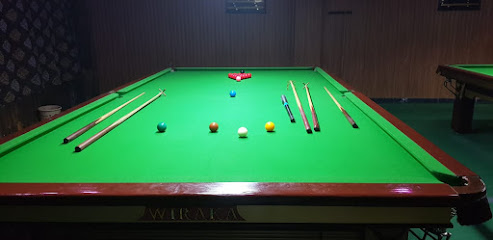
Explore the Historical Significance of the Tomb of Sardar Muhammad Ayub Khan
Discover the Tomb of Sardar Muhammad Ayub Khan, a historical gem in Peshawar, where rich culture and heritage meet serene surroundings.
Nestled in the heart of Peshawar, the Tomb of Sardar Muhammad Ayub Khan offers a glimpse into the rich history of the region. As a historical landmark dedicated to one of the notable figures of the early 20th century, this site draws visitors eager to learn about the cultural heritage of Khyber Pakhtunkhwa. Surrounded by the serene Durrani Graveyard, it is a perfect spot for both history enthusiasts and casual tourists alike.
A brief summary to Tomb of Sardar Muhammad Ayub Khan (d. 1914)
- XHV9+VVR, Peshawar, Durrani Graveyard, Peshawar, Khyber Pakhtunkhwa, PK
Local tips
- Visit early in the morning to enjoy the tranquility of the site before the crowds arrive.
- Consider bringing a camera; the tomb's architecture and surrounding landscape provide great photo opportunities.
- Wear comfortable shoes as you may want to explore the entire Durrani Graveyard area.
- Check local weather conditions before your visit, as hot temperatures can affect your experience.
Getting There
-
Walking
From the center of Qissa Khwani Bazaar, head towards the northern exit of the bazaar. As you exit, you will be on Tehkal Road. Continue straight for about 300 meters until you reach a fork in the road. Take the left fork, which is the continuation of Tehkal Road. Walk for another 600 meters until you see the Durrani Graveyard on your right side. The Tomb of Sardar Muhammad Ayub Khan is located within the graveyard. The entrance may not be directly visible, but you should see signs or locals directing you.
-
Local Rickshaw
If you prefer not to walk, you can hire a local rickshaw from Qissa Khwani Bazaar. Simply approach a rickshaw driver and inform them you want to go to Durrani Graveyard. The fare should be around 100-150 PKR. The ride will take approximately 10 minutes depending on traffic. Once you arrive, you may need to walk a short distance into the graveyard to reach the tomb.
-
Bicycle Rental
For those who enjoy cycling, consider renting a bicycle from one of the local rental shops in Qissa Khwani Bazaar. Head north on Tehkal Road as described in the walking directions. The ride is about 1 kilometer and should take around 5-10 minutes. Be mindful of traffic and always use the designated bike lanes if available. Once you reach Durrani Graveyard, lock your bicycle outside the entrance and walk in to find the tomb.
Discover more about Tomb of Sardar Muhammad Ayub Khan (d. 1914)
Iconic landmarks you can’t miss
Tomb of Sardar Muhammad Ayub Khan (d. 1914)
0.0 km
Discover the Tomb of Sardar Muhammad Ayub Khan, a historical gem in Peshawar, where rich culture and heritage meet serene surroundings.
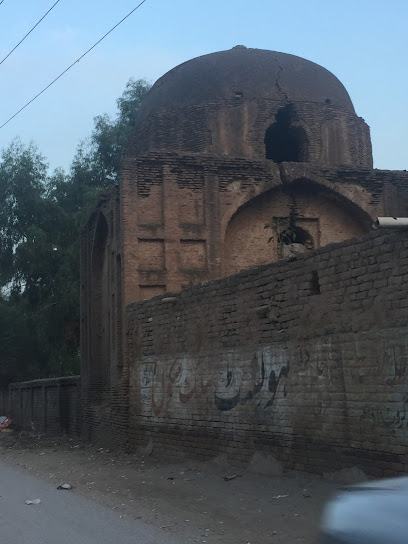
GRAVEYARD
0.3 km
Discover the serene beauty and rich history of Sheikh Habib Baba Graveyard in Peshawar, a tranquil shrine reflecting the region's cultural heritage.

Asia Gate
0.7 km
Discover the cultural richness of Peshawar at Asia Gate, a historic site reflecting the city's vibrant heritage and architectural splendor.
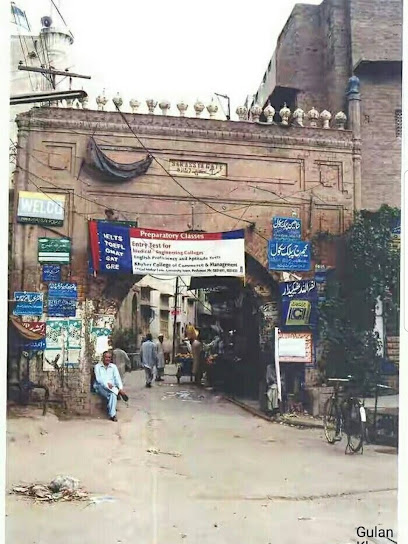
Kohati Gate
1.1 km
Discover the historical Kohati Gate in Peshawar, a gateway to ancient culture and vibrant local life.
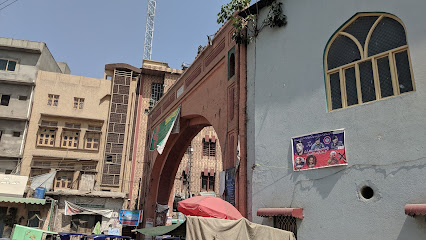
Walled city of Peshawar
1.4 km
Explore the vibrant history and culture of Peshawar's Walled City, a gateway to the ancient Silk Road with stunning architecture and lively bazaars.
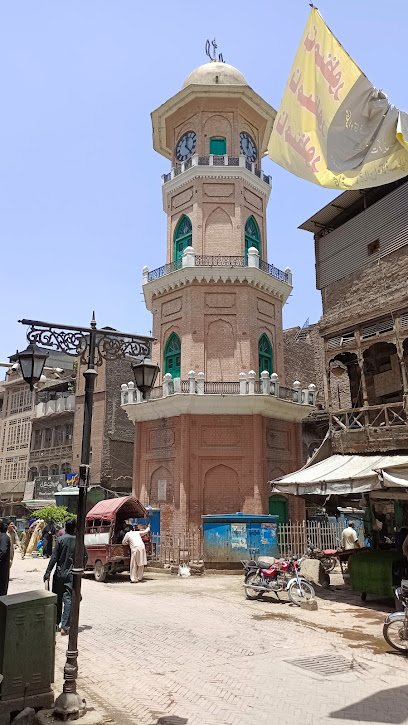
Dabgari Gardens
1.4 km
Experience the tranquil beauty of Dabgari Gardens in Peshawar, a perfect blend of nature and history that captivates every visitor.
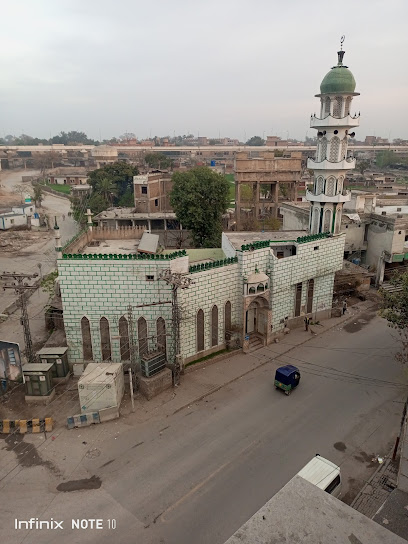
Misgran Bazaar
1.5 km
Discover the vibrant Misgran Bazaar in Peshawar, where traditional craftsmanship meets rich cultural history in a lively shopping experience.
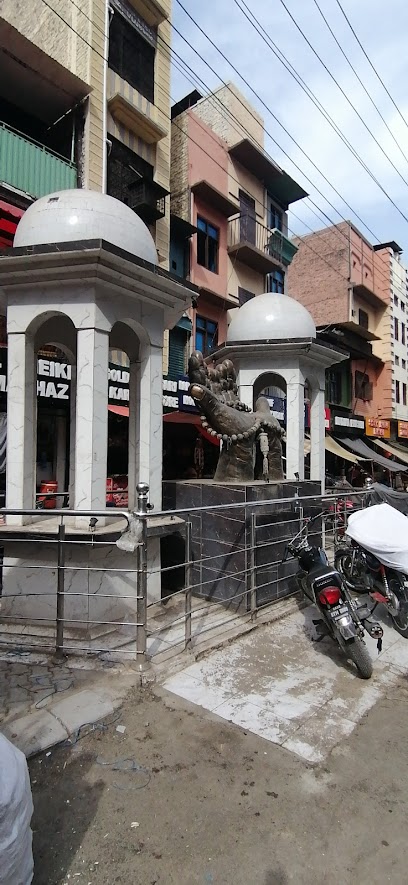
Zaiqa Rice, Zaiqa Chawal, Zaiqa Afghani Pulao
1.5 km
Discover the authentic taste of Peshawar at Zaiqa Rice, where traditional Afghani flavors come alive in a vibrant market setting.
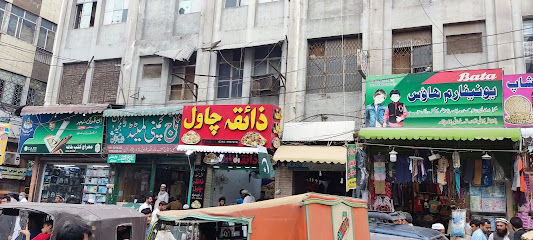
Kabuli Gate Qissa Khwani Bazar
1.5 km
Explore Kabuli Gate Qissa Khwani Bazar, a historical landmark in Peshawar, where vibrant culture and delicious cuisine blend in an unforgettable experience.
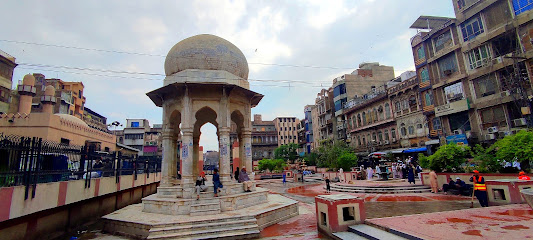
Chowk Yadgar Masjid
1.6 km
Discover the serenity of Chowk Yadgar Masjid in Peshawar, a stunning mosque with intricate architecture and a rich cultural heritage.
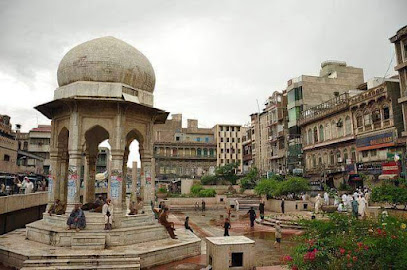
Kotla Mohsin Khan
1.6 km
Explore the historical charm of Kotla Mohsin Khan in Peshawar, a cultural gem showcasing the rich heritage of Pakistan.
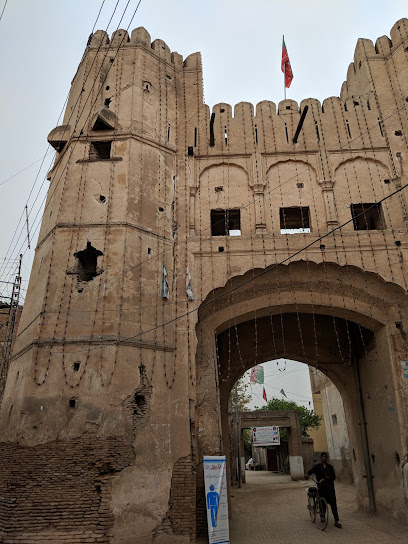
Hastings Memorial
1.7 km
Explore Hastings Memorial in Peshawar, a historical landmark that beautifully encapsulates the rich heritage and architectural splendor of the region.
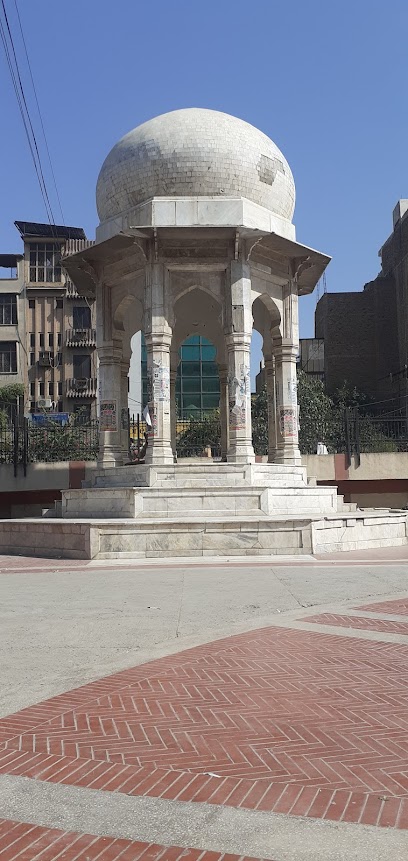
Chowk Yadgar
1.8 km
Experience the vibrant culture and rich heritage of Peshawar at Chowk Yadgar, the city's bustling town square filled with local traditions and flavors.
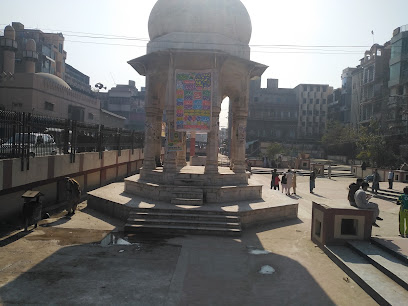
Cultural Heritage Trail
1.8 km
Discover the Cultural Heritage Trail in Peshawar, where history and tradition come alive through stunning landmarks and local experiences.
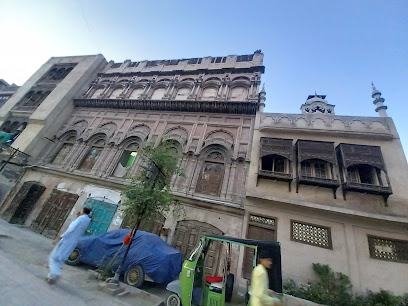
Gunj Gate
1.9 km
Explore Gunj Gate in Peshawar: A historical landmark that unveils the rich cultural heritage and storied past of one of Pakistan's oldest cities.
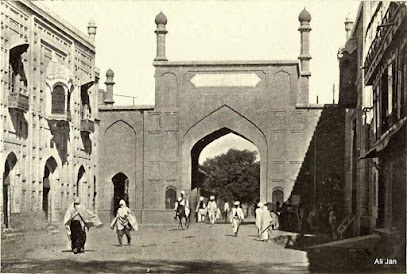
Unmissable attractions to see
Sadozai Graveyard
0.7 km
Explore the serene beauty and rich history of Sadozai Graveyard, a peaceful park in Peshawar that honors the past amidst lush surroundings.
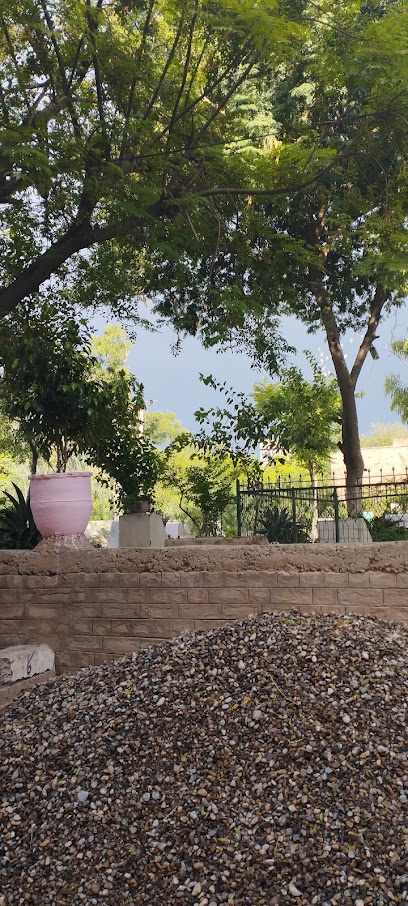
Aasia Park
1.0 km
Discover the tranquility of Aasia Park in Peshawar, where lush gardens and vibrant flora create a serene escape in the heart of the city.
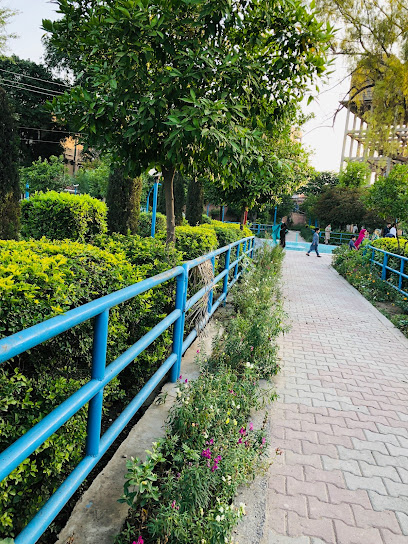
Yakatoot Gate
1.4 km
Explore the rich heritage of Yakatoot Gate, a historic landmark in Peshawar that embodies the cultural essence of Pakistan.
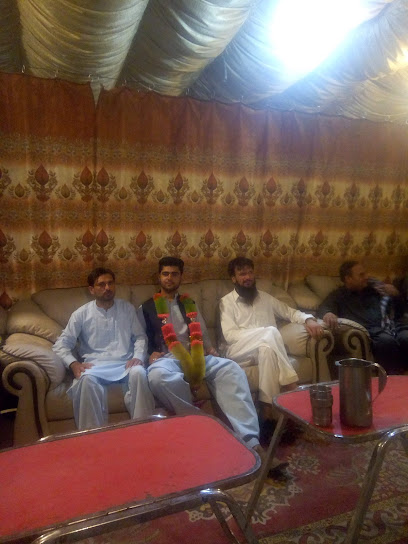
Qissa Khwani Bazar Gate
1.5 km
Discover the vibrant pulse of Peshawar at Qissa Khwani Bazar Gate, where history, culture, and culinary delights await.
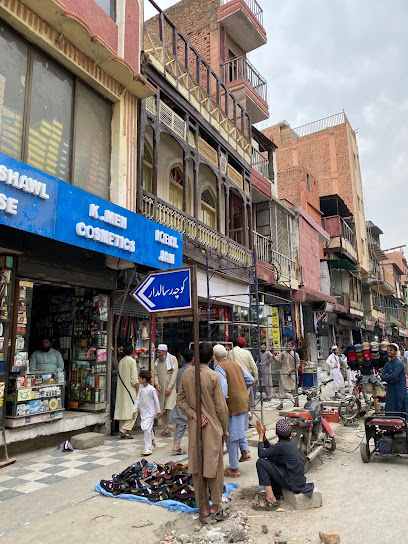
Bilal Abad Peshawar
1.6 km
Explore Bilal Abad, a remarkable tourist attraction in Peshawar, where rich culture meets vibrant local life and delicious cuisine awaits.

Sir Cunningham Clock Tower
1.8 km
Discover the Sir Cunningham Clock Tower in Peshawar, a historical landmark blending rich heritage with the vibrant atmosphere of Sarafa Bazar.
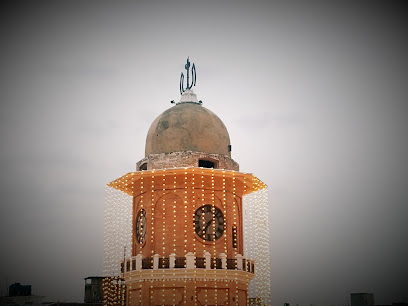
Mahabat Khan Mosque
1.8 km
Explore the stunning beauty and rich history of Mahabat Khan Mosque, a must-see landmark in Peshawar, Pakistan.
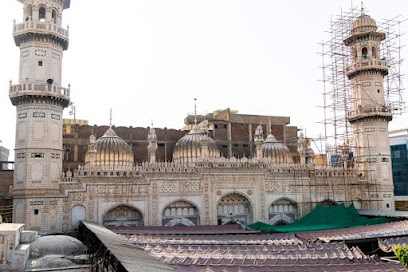
Peshawar Museum
1.8 km
Discover the rich history of Khyber Pakhtunkhwa at Peshawar Museum, home to stunning artifacts and a captivating cultural experience.
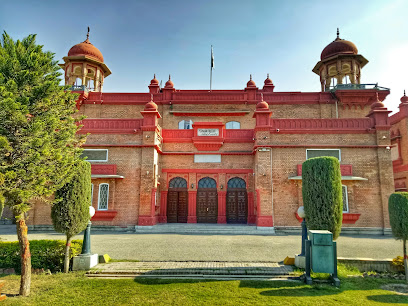
Sethi House Museum
1.8 km
Discover the splendor of Peshawar's heritage at Sethi House Museum, a treasure trove of history and artistry from the British Raj era.
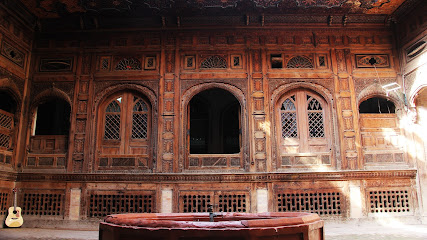
City Museum Karavan Serai
1.8 km
Discover the treasures of history at the City Museum Karavan Serai, where the rich cultural heritage of Peshawar comes to life through captivating exhibits.
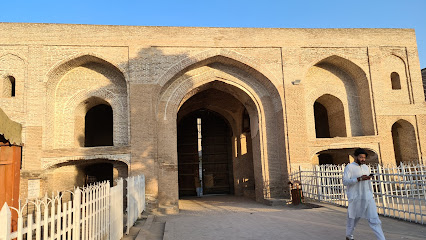
Gor Khatri
1.9 km
Explore Gor Khatri, an ancient historical site in Peshawar that showcases the rich cultural tapestry of Khyber Pakhtunkhwa with stunning architecture and vibrant local life.
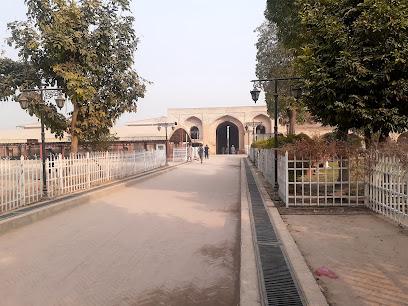
Kanishka Stupa Fort (200 CE)
2.1 km
Discover the ancient marvel of Kanishka Stupa Fort, a historical site that echoes the rich Buddhist heritage of Peshawar, Pakistan.
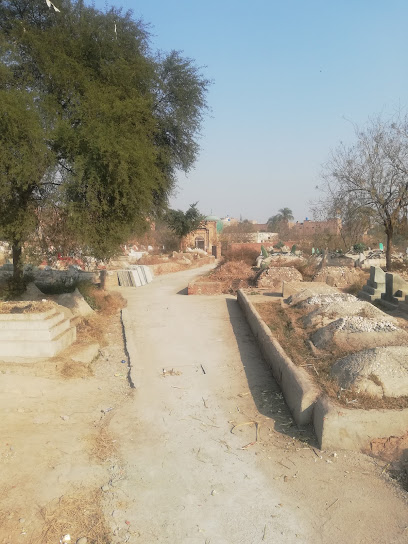
Jinnah Park
2.3 km
Discover Jinnah Park, a serene park in Peshawar that blends natural beauty with local culture, showcasing the essence of Pakistan's vibrant heritage.
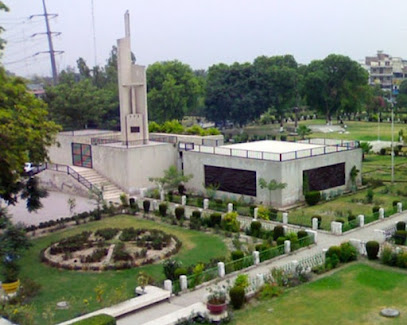
Chacha Younis Park
2.4 km
Discover serenity and recreation at Chacha Younis Park, Peshawar's cherished green haven ideal for families and nature lovers.
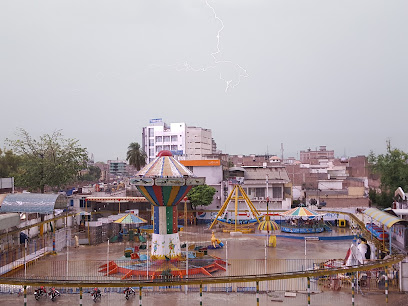
Asif Khan Baghi Park
2.4 km
Discover the tranquil beauty of Asif Khan Baghi Park in Peshawar, a perfect spot for relaxation and enjoying nature's serenity.
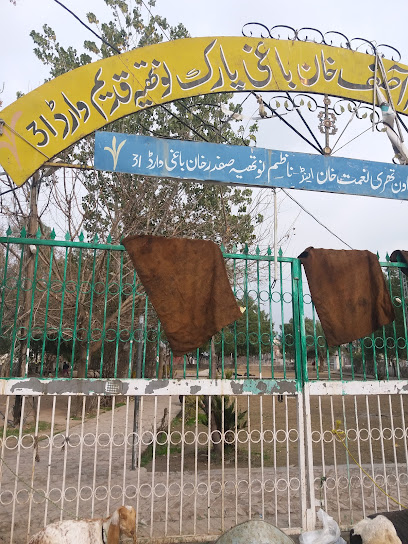
Essential places to dine
Waziristan
0.7 km
Experience authentic Pakistani cuisine in Waziristan amidst stunning landscapes and warm hospitality.

Khan Darbar BBQ & Karahi Restaurant
1.1 km
Discover the authentic taste of Pakistani cuisine at Khan Darbar BBQ & Karahi Restaurant in Peshawar, where every dish tells a story.
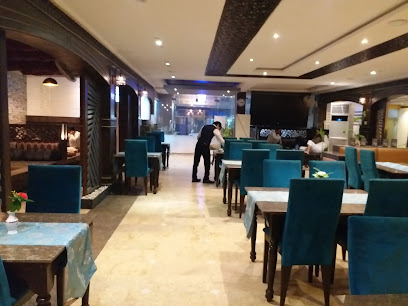
Namak Mandi Food Street
1.1 km
Explore the vibrant flavors of Pakistan at Namak Mandi Food Street in Peshawar—an unforgettable culinary adventure awaits!
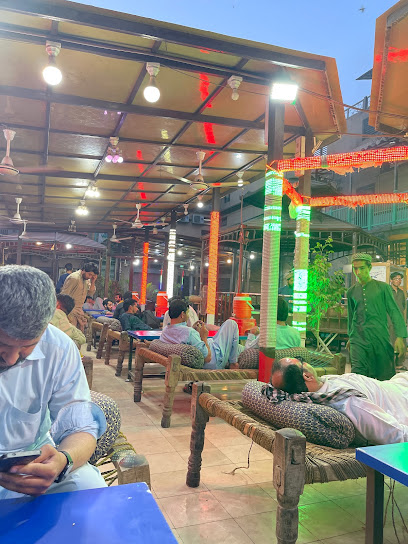
Nisar Charsi Tikka
1.2 km
Discover the authentic taste of Peshawar at Nisar Charsi Tikka - where every bite tells a story of tradition and flavor.
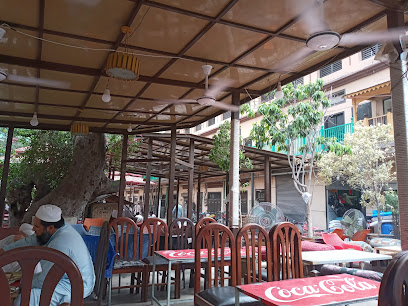
Namak Mandi Restaurant نمک منڈی
1.2 km
Experience the rich culinary heritage of Pakistan at Namak Mandi Restaurant in Peshawar, where every dish tells a story.
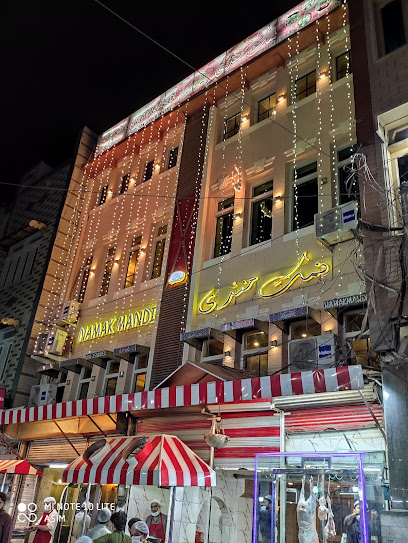
Nanna Mahi
1.4 km
Experience authentic Pakistani seafood at Nanna Mahi, a culinary landmark in Peshawar's historic Qissa Khwani Bazaar.
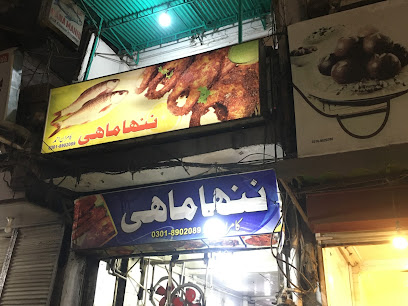
Gulf Hotel and Restaurant Peshawar
1.5 km
Experience authentic Pakistani cuisine at Gulf Hotel and Restaurant in Peshawar - where tradition meets flavor.
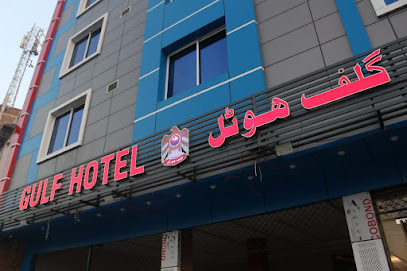
Qissa khuwani Cafe & shinwari
1.5 km
Experience authentic Pakistani flavors at Qissa Khuwani Cafe & Shinwari, where every meal is a celebration of tradition in Peshawar's vibrant atmosphere.

Laziz Chawal House
1.6 km
Discover authentic Pakistani cuisine at Laziz Chawal House in Peshawar – where every dish tells a story.
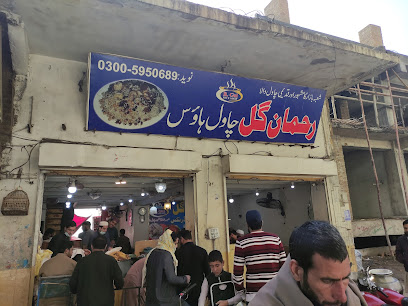
Rehman Gul Chawal
1.6 km
Experience the authentic taste of Afghani cuisine at Rehman Gul Chawal in Peshawar - a culinary delight you won't forget.
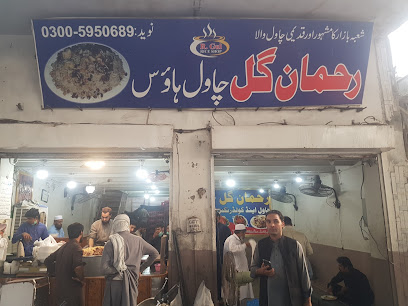
Ghanta Ghar Food Street
1.7 km
Discover the vibrant flavors of Ghanta Ghar Food Street in Peshawar - an unforgettable culinary journey through Pakistani street food culture.
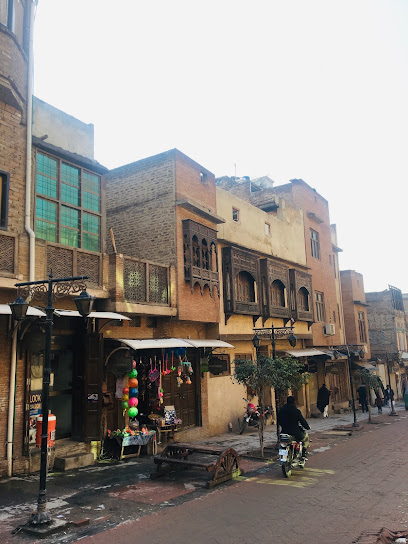
Shiraz Ronaq
2.1 km
Discover the rich flavors of traditional Pakistani cuisine at Shiraz Ronaq - an unforgettable buffet experience in Peshawar.
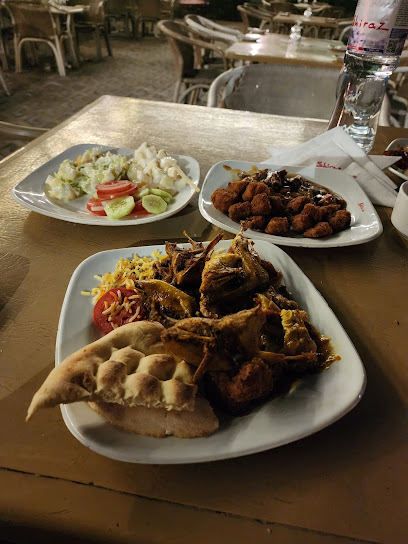
Muhamand Torey Kabab Restaurant
2.5 km
Experience the authentic taste of Pakistan with mouth-watering kebabs at Muhamand Torey Kabab Restaurant in Peshawar.
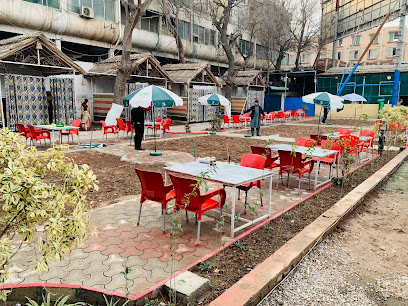
Khaane Khaas Restaurant - Family Restaurant Peshawar
2.5 km
Discover authentic Pakistani flavors at Khaane Khaas Restaurant in Peshawar—perfect for family gatherings and culinary adventures.
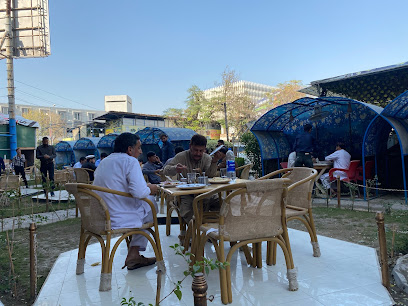
The City Food Court
2.5 km
Experience the vibrant flavors at The City Food Court in Peshawar—where family-friendly dining meets diverse culinary delights.
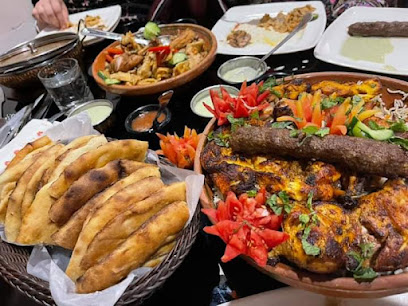
Markets, malls and hidden boutiques
Gandhara Gemstones
1.1 km
Discover the enchanting world of gemstones at Gandhara Gemstones, where beauty meets craftsmanship in the heart of Peshawar.
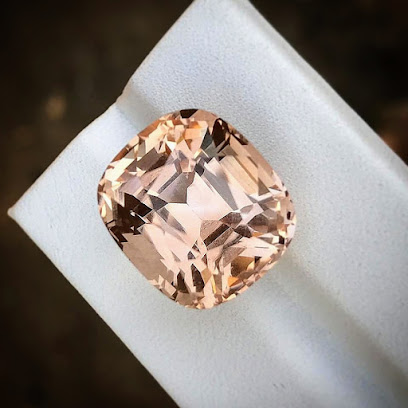
UNIQUE FASHION CENTER .
1.4 km
Explore the vibrant clothing styles at UNIQUE FASHION CENTER in Peshawar, blending traditional craftsmanship with modern fashion trends.

Babaji market
1.4 km
Discover the essence of Peshawar at Babaji Market, a bustling hub of shopping, food, and culture that offers unique local experiences and treasures.
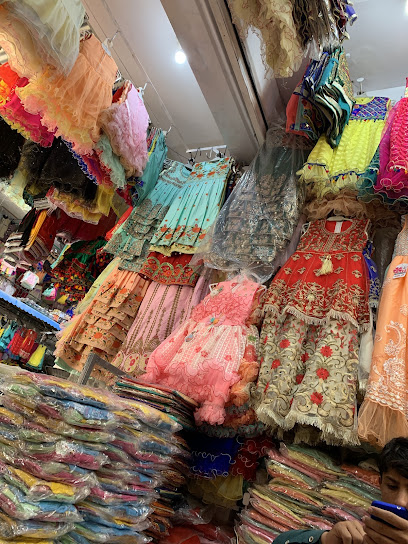
Lahori Sweet House
1.5 km
Experience the rich flavors of Pakistan at Lahori Sweet House in Peshawar's historic Qissa Khwani Bazaar, a paradise for sweet lovers.
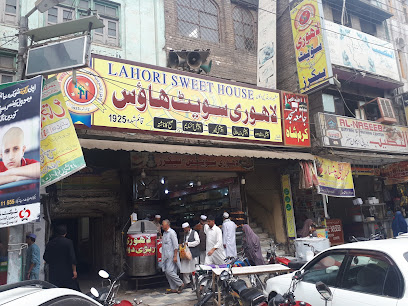
Nasir Book Center Book Shop Qisaa Khwani Bazaar Peshawar
1.5 km
Discover the literary heart of Peshawar at Nasir Book Center, a charming bookstore in the historic Qissa Khwani Bazaar, perfect for book lovers.
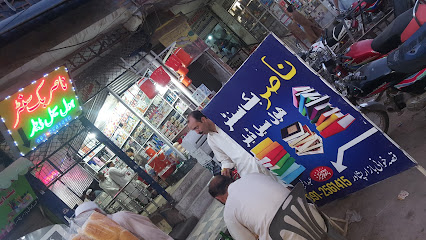
Roshan Brands Boutique
1.5 km
Explore the vibrant styles of Roshan Brands Boutique in Peshawar, offering unique clothing and pet supplies for every taste.

A RAZZAQ STATIONER PESHAWAR SADDAR
2.6 km
Discover quality stationery and local art at A Razzaq Stationer in Peshawar Saddar, a vibrant hub for creativity and craftsmanship.
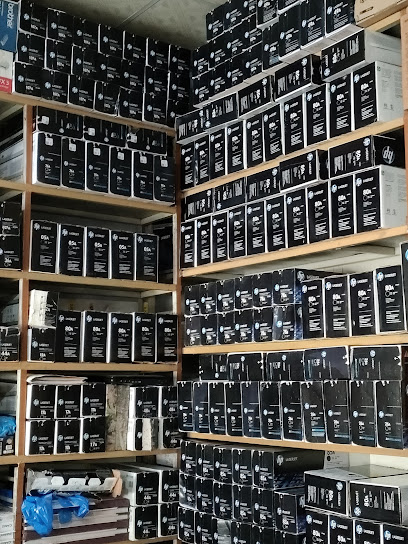
Arts Emporium
2.6 km
Arts Emporium: Your Gateway to Authentic Antiques and Cultural Treasures in Peshawar.
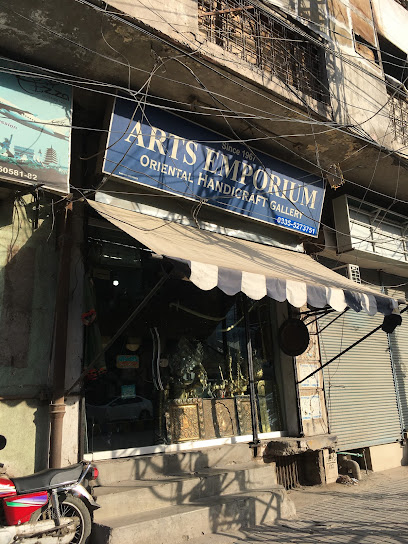
Dress Age Saddar road branch
2.8 km
Discover the vibrant fashion scene at Dress Age in Peshawar, where traditional elegance meets modern style in stunning garments.
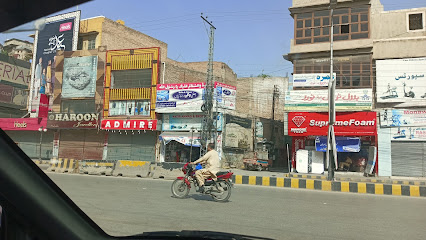
hoor fashion
2.8 km
Explore Hoor Fashion in Peshawar's Gora Bazaar for a unique blend of traditional and contemporary women's clothing.

ibrahim shoes and khussa shop
2.8 km
Experience the rich cultural heritage of Peshawar at Ibrahim Shoes and Khussa Shop, where traditional craftsmanship meets vibrant local life.

J emposium
2.8 km
Explore J emposium in Peshawar for a unique shopping experience filled with local culture, vibrant products, and warm hospitality.

ASIA BOUTIQUE
3.0 km
Discover unique fashion at Asia Boutique, where traditional elegance meets modern style in the heart of Peshawar.

The bannu wool shop (Saddar peshawar)
3.0 km
Explore authentic Peshawari textiles at The Bannu Wool Shop, where tradition meets craftsmanship in a vibrant shopping experience.

Style 360
3.0 km
Discover a unique blend of traditional and modern fashion at Style 360, the must-visit outlet store in Peshawar's Saddar Bazar.
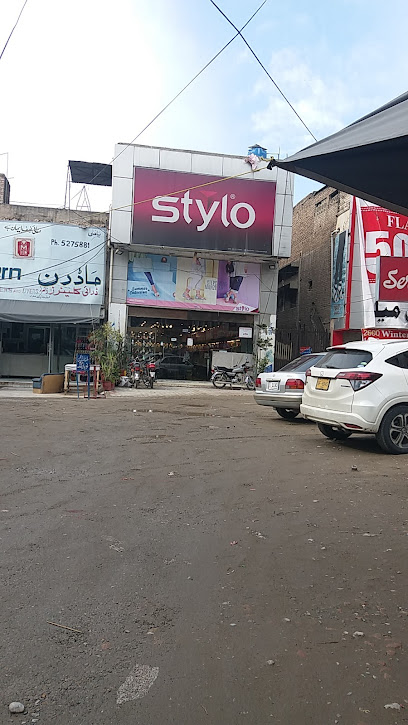
Essential bars & hidden hideouts
Wahab Bhai Dahin Bhally
1.4 km
Discover the lively ambiance and diverse menu at Wahab Bhai Dahin Bhally, a popular bar in Peshawar that brings locals and tourists together.

Saeed Food Corner and fresh juice point
1.5 km
Experience authentic Asian cuisine and fresh juices at Saeed Food Corner in Peshawar, a vibrant hub for food lovers and cultural explorers.
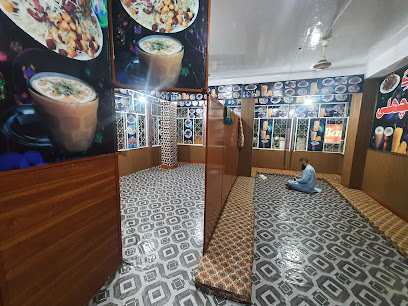
Baba Lassi waala
1.6 km
Discover the refreshing taste of traditional lassis at Baba Lassi Waala, a beloved bar in Peshawar's Shuba Bazaar Shoba.
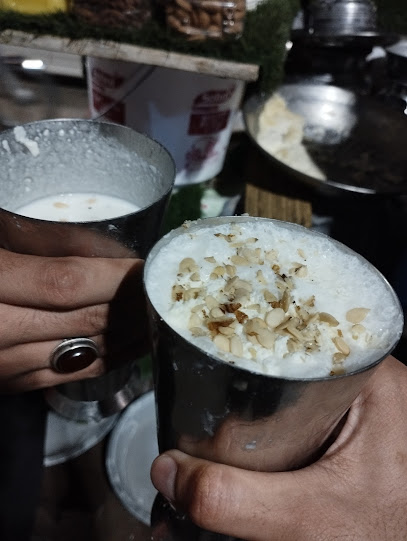
HAJI MEHBOOB COLD DRINKS
2.3 km
Discover the refreshing flavors of Peshawar at Haji Mehboob Cold Drinks, a local favorite for cold beverages and delightful experiences.

Ali Khan Juice Bar
2.3 km
Discover the refreshing tastes of Peshawar at Ali Khan Juice Bar, where vibrant flavors and a friendly atmosphere await every visitor.
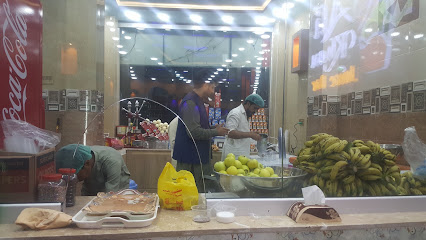
پشاور
2.4 km
Experience the vibrant nightlife of Peshawar, where tradition meets modernity in lively bars filled with culture and hospitality.

قاسم اباد (اتحادامن کمیٹی)
2.5 km
Experience the vibrant nightlife of Peshawar at قاسم اباد (اتحادامن کمیٹی), a cozy bar that offers a taste of local culture and hospitality.
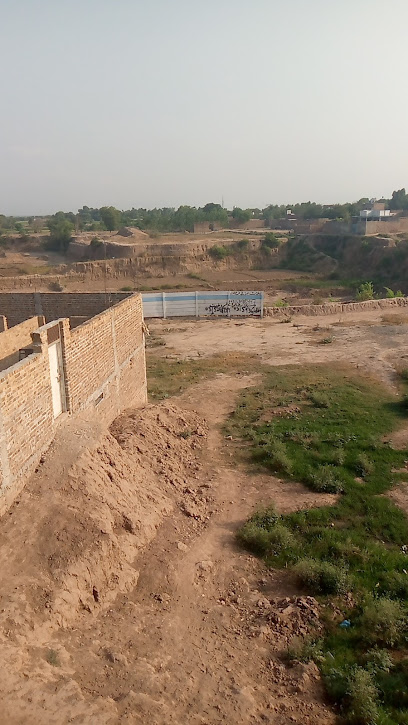
قاسم اباد (اتحادامن کمیٹی)
2.5 km
Discover the lively ambiance of قاسم اباد (اتحادامن کمیٹی) in Peshawar, where local culture meets vibrant nightlife.
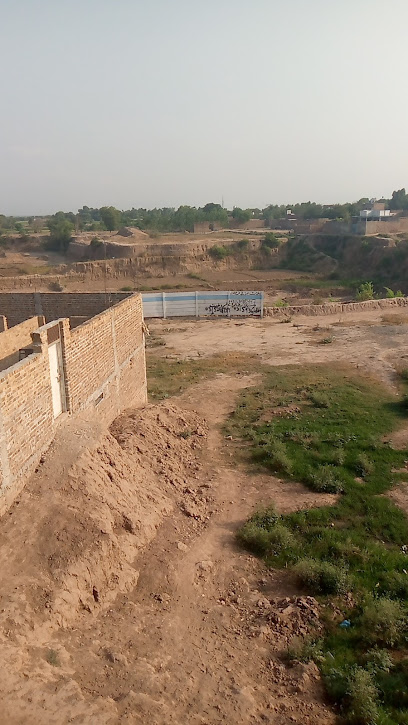
FIT AND FRESH
2.8 km
Discover the vibrant atmosphere and refreshing drinks at FIT AND FRESH in Peshawar's Bani Gala Gulbahar, a perfect retreat for travelers.

SAFI JUICE CENTER
2.9 km
Discover the vibrant flavors of Peshawar at Safi Juice Center, your go-to spot for fresh juices and local culture.
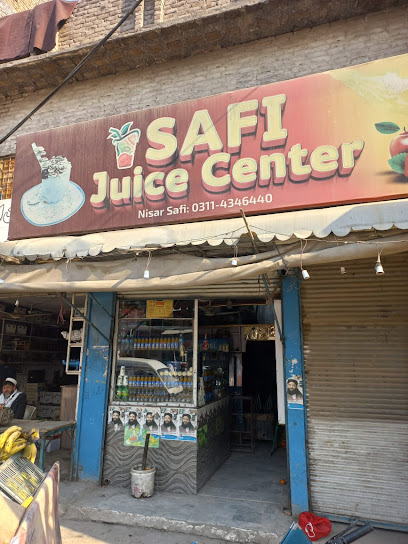
Juice Point
3.1 km
Experience the vibrant atmosphere and refreshing drinks at Juice Point, the perfect bar to unwind in Peshawar Cantonment.
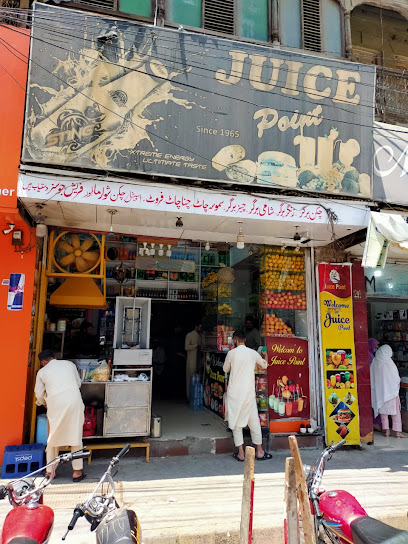
HARMAIN CABIN
3.2 km
Experience the warmth and charm of Harmain Cabin, a cozy bar in Peshawar's vibrant Shaheen Muslim Town, perfect for relaxation and friendly gatherings.
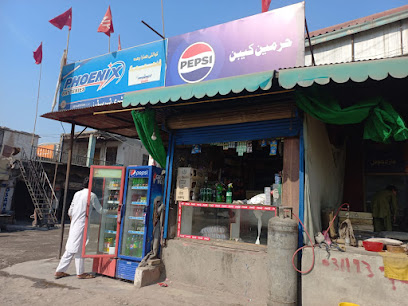
Itefaq street
3.5 km
Discover the vibrant nightlife at Itefaq Street, a popular bar in Peshawar offering a unique blend of local and international beverages.

Hotels
3.9 km
Discover the vibrant nightlife of Peshawar at this lively stand bar, where refreshing drinks and local culture come together.

Friends Snooker Club فرینڈز سونوکر کلب
4.3 km
Experience Peshawar's vibrant sports culture at Friends Snooker Club, where snooker, camaraderie, and local flair come together.
